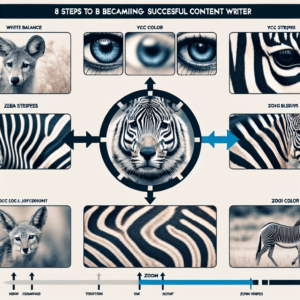Common Hr Interview Questions And How To Answer Them
When preparing for a job interview, one of the most critical stages is the human resources (HR) interview. This phase often serves as the initial screening process, where HR professionals assess a candidate’s suitability for the company culture, communication skills, and overall alignment with the organization’s values. Understanding common HR interview questions and how to answer them effectively can significantly enhance a candidate’s chances of progressing to the next stage of the hiring process.
A frequently asked question in HR interviews is, “Tell me about yourself.” While this may seem straightforward, it is essential to craft a concise and relevant response. Candidates should focus on their professional background, key accomplishments, and what they are currently seeking in a new role. This question offers an opportunity to set the tone for the interview and highlight experiences that align with the job description.
Another common question is, “Why do you want to work here?” Employers use this to gauge a candidate’s interest in the company and their understanding of its mission and values. A well-prepared answer should demonstrate that the candidate has researched the organization and can articulate how their skills and goals align with the company’s objectives. Mentioning specific aspects of the company’s culture, recent achievements, or industry reputation can further strengthen the response.
Equally important is the question, “What are your strengths and weaknesses?” When discussing strengths, candidates should choose qualities that are relevant to the role and provide examples to support their claims. For weaknesses, it is advisable to mention an area of improvement that is not critical to the job and to explain the steps being taken to address it. This approach shows self-awareness and a commitment to personal development.
HR professionals also often ask, “Where do you see yourself in five years?” This question aims to assess a candidate’s long-term goals and whether they align with the company’s growth trajectory. A thoughtful response should reflect ambition while also demonstrating a realistic understanding of career progression within the industry. It is beneficial to express a desire to grow within the organization and contribute meaningfully over time.
Behavioral questions such as, “Can you describe a time when you faced a challenge at work and how you handled it?” are also common. These questions are designed to evaluate problem-solving abilities, resilience, and interpersonal skills. The STAR method—Situation, Task, Action, and Result—is a useful framework for structuring responses. By clearly outlining the context, the specific challenge, the actions taken, and the outcome, candidates can provide compelling examples of their capabilities.
Finally, candidates may be asked, “Why are you leaving your current job?” or “Why did you leave your last position?” It is important to answer these questions honestly while maintaining a positive tone. Avoid speaking negatively about previous employers; instead, focus on seeking new challenges, opportunities for growth, or a better alignment with career goals.
In conclusion, preparing for common HR interview questions involves more than rehearsing answers—it requires self-reflection, research, and the ability to communicate effectively. By understanding the intent behind each question and responding with clarity and professionalism, candidates can make a strong impression and increase their chances of success in the hiring process.
Top Behavioral Hr Interview Questions To Prepare For

When preparing for an HR interview, it is essential to anticipate behavioral questions, as they are a common method used by interviewers to assess a candidate’s past experiences and predict future performance. These questions are designed to evaluate how you have handled various situations in the workplace, focusing on competencies such as teamwork, leadership, problem-solving, adaptability, and communication. By understanding the types of behavioral questions you may encounter, you can better prepare to present your experiences in a structured and compelling manner.
One of the most frequently asked behavioral questions is, “Tell me about a time you faced a challenging situation at work and how you handled it.” This question aims to assess your problem-solving skills and resilience. When responding, it is helpful to use the STAR method—Situation, Task, Action, and Result—to clearly outline the context, your responsibilities, the steps you took, and the outcome. This structured approach ensures that your answer is both comprehensive and easy to follow.
Another common question is, “Describe a time when you had to work closely with someone whose personality was very different from yours.” This question evaluates your interpersonal skills and ability to collaborate effectively with diverse team members. Employers want to see that you can maintain professionalism and productivity, even when faced with interpersonal challenges. Highlighting your ability to find common ground and communicate effectively can demonstrate your emotional intelligence and teamwork capabilities.
In addition, you may be asked, “Give an example of a goal you set and how you achieved it.” This question is intended to gauge your motivation, planning abilities, and follow-through. When answering, be sure to explain why the goal was important, the steps you took to reach it, and any obstacles you overcame along the way. Emphasizing measurable results can further strengthen your response and show your commitment to achieving objectives.
Equally important is the question, “Tell me about a time you made a mistake and how you handled it.” This question tests your accountability and capacity for growth. Rather than avoiding the topic or downplaying the error, focus on what you learned from the experience and how you took responsibility. Demonstrating that you can reflect on your actions and implement improvements shows maturity and a willingness to develop professionally.
Another behavioral question you might encounter is, “Describe a situation where you had to adapt to a significant change at work.” This question assesses your flexibility and ability to thrive in dynamic environments. Employers value candidates who can remain effective under changing circumstances. In your response, illustrate how you adjusted your approach, maintained productivity, and supported your team during the transition.
Finally, you may be asked, “Can you share an example of how you handled a conflict with a colleague?” This question is designed to evaluate your conflict resolution skills. A strong answer will show that you approached the situation calmly, listened actively, and worked toward a mutually beneficial resolution. Highlighting your ability to manage disagreements constructively can reassure employers of your professionalism and collaborative nature.
In conclusion, preparing for behavioral HR interview questions involves reflecting on your past experiences and practicing how to articulate them clearly and confidently. By anticipating these questions and crafting thoughtful responses, you can demonstrate your qualifications and make a strong impression during the interview process.
Hr Interview Questions That Reveal Cultural Fit
When evaluating candidates during the hiring process, technical skills and experience are undoubtedly important. However, assessing cultural fit is equally critical to ensure long-term success and employee satisfaction. Human Resources (HR) professionals play a pivotal role in identifying whether a candidate aligns with the company’s values, work environment, and team dynamics. To achieve this, HR interview questions must go beyond surface-level inquiries and delve into the candidate’s personality, work style, and interpersonal approach.
One effective way to begin assessing cultural fit is by asking candidates to describe their ideal work environment. This question encourages them to reflect on the type of culture in which they thrive, whether it be collaborative, fast-paced, structured, or flexible. Their response can then be compared to the company’s existing culture to determine alignment. For instance, a candidate who values autonomy and innovation may be well-suited for a startup environment, while someone who prefers clear hierarchies and established procedures might be a better fit for a more traditional organization.
In addition to understanding preferences, it is also important to explore how candidates have adapted to different workplace cultures in the past. Questions such as, “Can you describe a time when you had to adjust to a new team or company culture?” provide insight into their adaptability and openness to change. A candidate who demonstrates resilience and a willingness to embrace new norms is more likely to integrate smoothly into a new organization.
Another valuable approach is to inquire about the candidate’s values and how they align with those of the company. Asking, “What company values are most important to you?” or “What kind of company mission inspires you?” can reveal whether the candidate’s personal principles resonate with the organization’s core beliefs. This alignment often leads to greater job satisfaction and a stronger sense of purpose, which in turn contributes to higher retention rates.
Team dynamics also play a significant role in cultural fit. Therefore, HR professionals should consider asking questions that uncover how candidates interact with colleagues. For example, “How do you handle conflict in a team setting?” or “Can you give an example of how you contributed to a team’s success?” These questions help assess communication skills, emotional intelligence, and the ability to collaborate effectively—traits that are essential in maintaining a positive workplace culture.
Furthermore, understanding a candidate’s motivation and work ethic can provide additional clues about cultural compatibility. Questions like, “What motivates you to do your best work?” or “How do you stay productive during challenging times?” offer a glimpse into the candidate’s internal drive and how it aligns with the company’s expectations and pace.
Finally, it is beneficial to ask situational or behavioral questions that simulate real workplace scenarios. These questions, such as “Describe a time when you had to make a difficult decision without clear guidance,” allow candidates to demonstrate their problem-solving abilities and decision-making style. Their responses can indicate whether they are likely to thrive within the company’s decision-making framework and leadership structure.
In conclusion, HR interview questions that reveal cultural fit are essential for building cohesive, high-performing teams. By thoughtfully crafting questions that explore values, adaptability, teamwork, and motivation, HR professionals can make more informed hiring decisions that benefit both the organization and the candidate.



